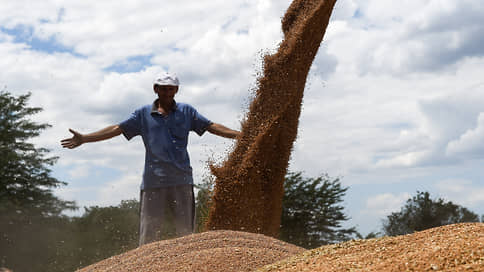The grain of independence – Kommersant
[ad_1]

The European Commission approved the Polish program of state support for local agricultural producers, which provides for the allocation of €1 billion to farmers who have suffered from the multiple increase in imports of Ukrainian agricultural products over the past year. Although the EU authorities recognize the plight of manufacturers, they do not plan to expand support from the European budget yet, effectively shifting the responsibility for resolving the crisis to the Polish government. The allocation of funds from the state budget is likely to support, on the one hand, local farmers who are in no hurry to sell their stocks of grain accumulated by the end of the season, and on the other hand, the ruling party, which is increasing support for the “rural electorate” before the upcoming elections.
On Tuesday, May 23, the European Commission (EC) agreed with the Polish authorities, the allocation of €1 billion from the state budget to support local agricultural producers affected by the influx of Ukrainian products.
As follows from a statement released today, the EU authorities recognized the program developed by the Polish government as complying with the “interim rules for state aid in crisis situations”, which the EC adopted in March 2023, giving EU member states the opportunity to more actively support their own markets than before.
In accordance with the rules, assistance to Polish farmers in the form of direct grants cannot exceed €250,000 per recipient and will be provided no later than December 31, 2023.
By approving the allocation of additional funds from the state budget, the European Commission actually recognized the plight of local farmers and confirmed that it would expand its own support measures, as Kommersant previously wrote (see. “Kommersant-Online” from May 2) is not ready yet.
Recall that at the beginning of the month, after numerous appeals from Eastern European countries, the EU authorities agreed to temporarily limit the supply of certain types of grain from Ukraine to border states, as well as to allocate €100 million to the victims – in return, the countries undertook to lift the previously imposed unilateral bans and allow the transit of Ukrainian agricultural products to third countries. .
Poland, which suffered from the overstocking of the market with Ukrainian grain more than others (its imports into the country increased from 6 thousand tons in the period from January to November 2021 to 1.6 million tons in the same period in 2022), has repeatedly pointed out the insufficiency of these measures : calling for the extension and expansion of the imposed restrictions (the last letter from the Polish Ministry of Agriculture to the EC is dated May 12). In parallel with this, the Polish government was developing its own scheme to support manufacturers – it was today that the European Commission approved it.
The active actions of local authorities are explained by the fact that, despite the funds already allocated from the European budget and additional state support, agricultural producers are in no hurry to sell grain.
Serious, according to the local Ministry of Agriculture, by the end of the agricultural year, farmers remained with grain stocks due to the fact that they kept their products for the whole season, waiting for a price increase, which, however, did not happen even after Ukrainian grain “left” the market. Now, the Polish Ministry of Agriculture fears that the accumulated stocks of last season at the beginning of the new agricultural year may lead to a new problem – a shortage of storage capacities.
Another reason for the active support of the agro-industrial complex by local authorities, apparently, remains the parliamentary elections, which will be held in the fall of 2023. Farmers are traditionally the most important part of the electorate of the ruling conservative Law and Justice Party (PiS). Judging by the latest polls, the villagers still support PiS, but claims against the party are growing amid the crisis related to the import of Ukrainian agricultural products.
Meanwhile, as indicated Financial Times, the association Agrounia, which has recently registered as a political party, is also fighting for the support of the “rural electorate”. It was she who organized the protests of Polish farmers, which began at the beginning of the year (see below). “Kommersant” dated February 2) and led to the first joint statement of states bordering Ukraine. Then the countries turned to the EU authorities with a demand to return customs duties on Ukrainian agricultural products that were canceled in 2022, to pay compensation to affected farmers and change supply routes so that grains do not settle on European markets, but are redirected to developing countries.
[ad_2]
Source link






